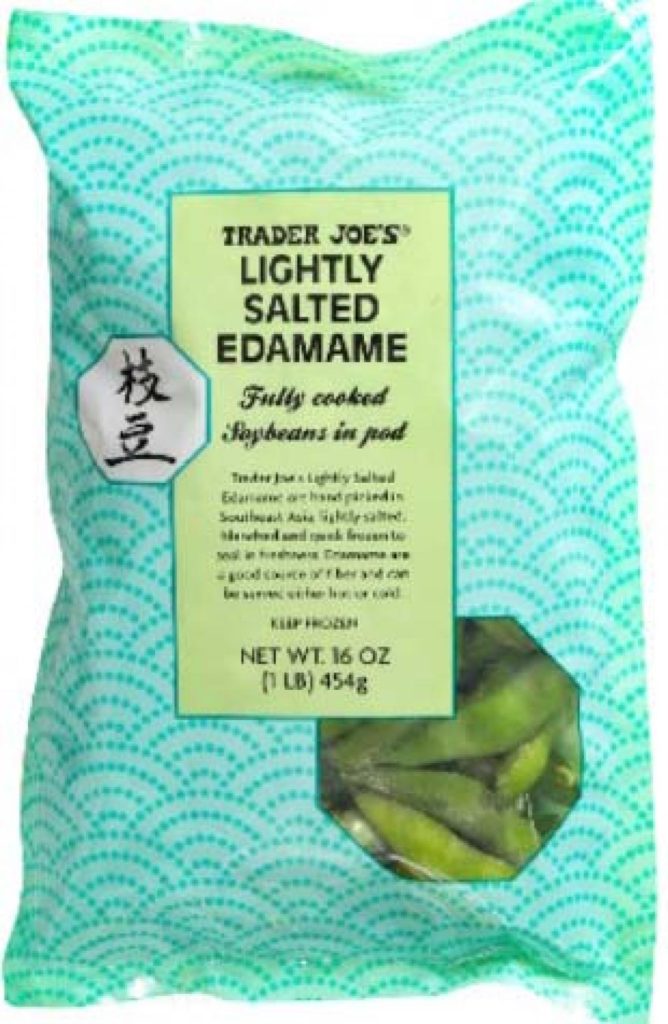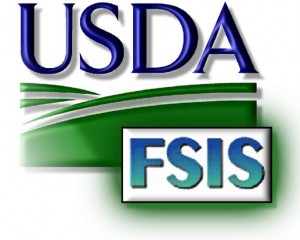The FDA announced on its website that Tesoros Trading Co. (Las Vegas, NV) is recalling some lots of frozen “Trader Joe’s Lightly Salted Edamame” because they have the potential to be contaminated with Listeria monocytogenes. The recalled “Trader Joe’s Lightly Salted Edamame” were sold at Trader Joe’s retail stores only in the Arizona, Southern California, Southern Nevada, and Utah regions. All affected product has been removed from sale and destroyed. The product comes in a 16-ounce plastic package. @ https://www.fda.gov/safety/recalls-market-withdrawals-safety-alerts/tesoros-trading-company-recalls-product-because-possible-health-risk?utm_medium=email&utm_source=govdelivery
ruth
Tesoros Trading Co. from Las Vegas, NV is recalling certain codes of frozen “Trader Joe’s Lightly Salted Edamame” because they have the potential to be contaminated with Listeria monocytogenes, an organism which can cause serious and sometimes fatal infections in young children, frail or elderly peo
ruth
Food Safety News reported that in 2019, there were 402 foodborne disease outbreaks reported to the Robert Koch-Institut (RKI) or the Federal Office of Consumer Protection and Food Safety (BVL). At least 1,970 illnesses, 385 hospitalizations, and five deaths were linked to the outbreaks. The report shows 902 potential foodborne outbreaks (excluding norovirus gastroenteritis) with 2,632 patients compared to 886 outbreaks in 2018. Campylobacter caused387 outbreaks, and Salmonella caused 277 in 2019. Of the 902 outbreaks, 333 were listed as food-related and affecting 1,213 patients (163 outbreaks from Campylobacter with 391 patients and 126 from Salmonella with 676 cases). Two deaths were caused by listeriosis. Clostridium perfringens caused the largest outbreak, with 75 people sick. Due to eggs, the second-largest incident included 64 patients, 19 of whom had to be hospitalized. Factors that contributed to outbreaks included cross-contamination, inadequate heat treatment or cooling, and an infected employee. @ https://www.foodsafetynews.com/2020/12/germany-reports-400-outbreaks-in-2019/?utm_source=Food+Safety+News&utm_campaign=3fc0bb3325-RSS_EMAIL_CAMPAIGN&utm_medium=email&utm_term=0_f46cc10150-3fc0bb3325-40253059
Germany recorded more than 400 foodborne outbreaks in 2019 with almost 2,000 illnesses and five deaths, according to recently released statistics. In
The U.S. Department of Agriculture’s (USDA) Food Safety and Inspection Service (FSIS) announced key achievements for fiscal year (FY) 2020. It highlighted progress to modernize the agency and fulfill its mission to prevent foodborne illness and protect public health. No FSIS regulated establishments closed due to a lack of inspection personnel as a result of Covid-19. In FY 2020, the agency inspected more than 166 million head of livestock and 9.68 billion poultry carcasses. The FSIS inspected 2.5 billion pounds of liquid, frozen, and dried egg products. FSIS inspection program personnel also conducted 7.3 million food safety and food defense procedures across 6,500 regulated establishments to ensure meat, poultry, and egg products are safe and wholesome. In October 2019, FSIS published the final rule on the Modernization of Swine Slaughter Inspection. FSIS announced the Egg Products Inspection Regulations final rule on September 9, 2020, the first time that egg product inspection methods have been modernized since 1970. FSIS modernized laboratory methods for identifying Salmonella, moving to DNA based methods. In September 2020, FSIS, in conjunction with USDA’s Office of Food Safety, released the Roadmap to Reducing Salmonella. The agency reinspected 4.3 billion pounds of meat and poultry and 7 million pounds of eggs in FY 2020. In January, FSIS allowed U.S. exporters to apply electronically and receive export certification for the People’s Republic of China. @ https://www.fsis.usda.gov/wps/portal/fsis/newsroom/news-releases-statements-transcripts/news-release-archives-by-year/archive/2020/nr-12162020-01
The U.S. Department of Agriculture’s (USDA) Food Safety and Inspection Service (FSIS) today announced key achievements for fiscal year (FY) 2020 and highlighted progress on its goal of modernizing the agency and fulfilling its mission to prevent foodborne illness and protect public health.
ruth
On November 20, health officials with the Cabarrus Health Alliance reported that “more than ten individuals” were sickened by the sushi. As of December 15, 159 confirmed sick people got sick after eating sushi from two (358 George W. Liles Pkwy NW, Concord and Harris Teeter at 1245 Concord Parkway North, Concord )Harris Teeter stores in Concord, North Carolina. According to Cabarrus Health Alliance news, the pathogen causing the illness is not yet identified and food and specimen samples are being collected for laboratory culture to identify the pathogen. Sushi production and sales at the store on George W. Liles Parkway have been suspended until further notice. Harris Teeter has proactively identified and notified 429 households which purchased sushi product at these locations during the identified timeframe. AFC is the largest US franchisor of supermarket sushi bars, with over 3,300 sushi bars in stores nationwide. @ https://dailyhornet.com/2020/sushi-from-harris-teeter-sickens-159-people-in-north-carolina/
At least 159 people in North Carolina were sickened after eating at sushi bar kiosks located inside two Harris Teeter stores in Concord.




